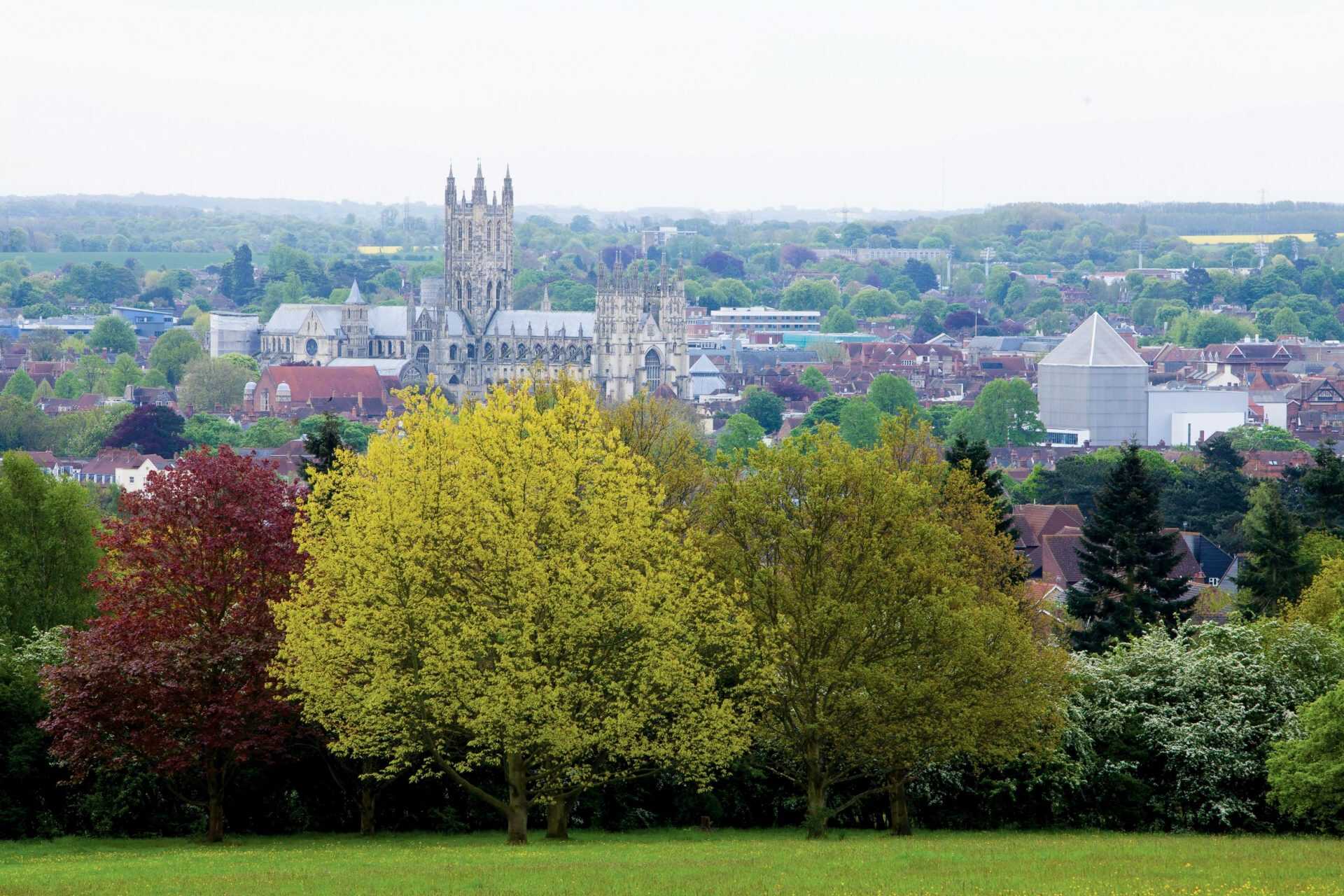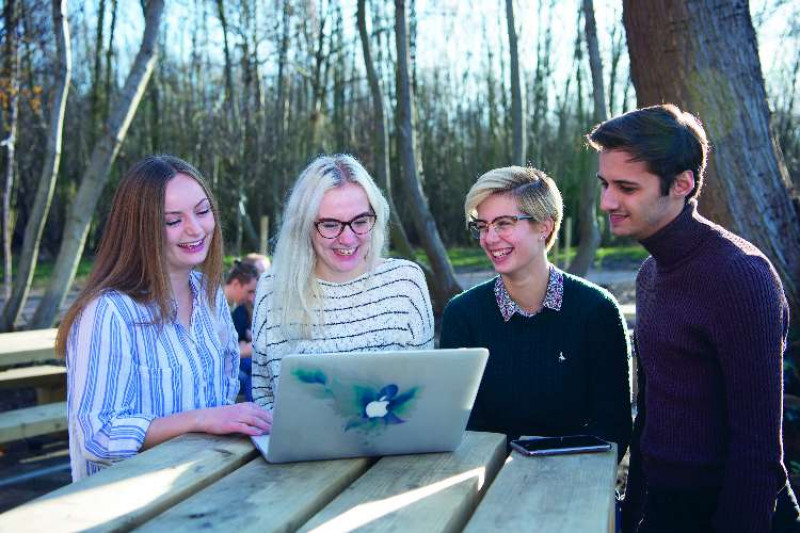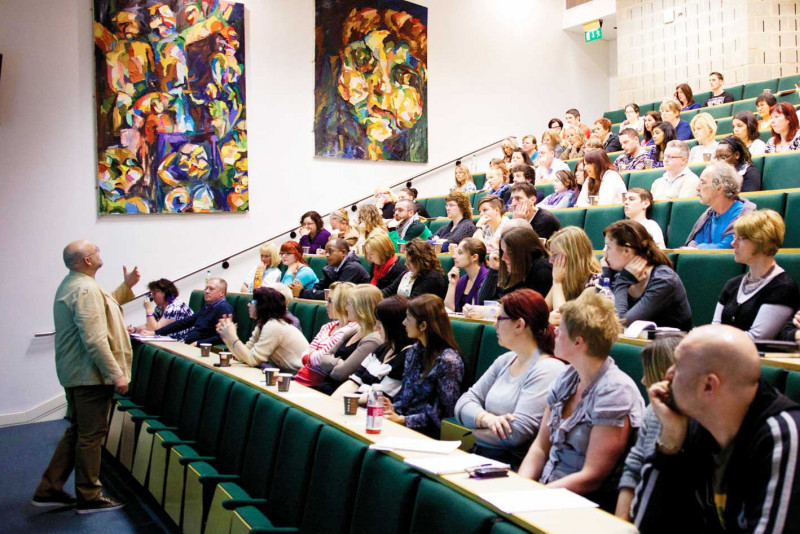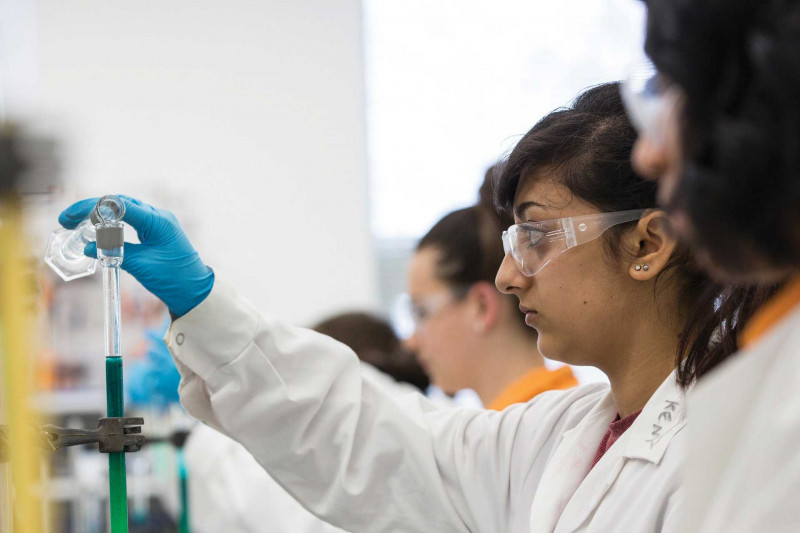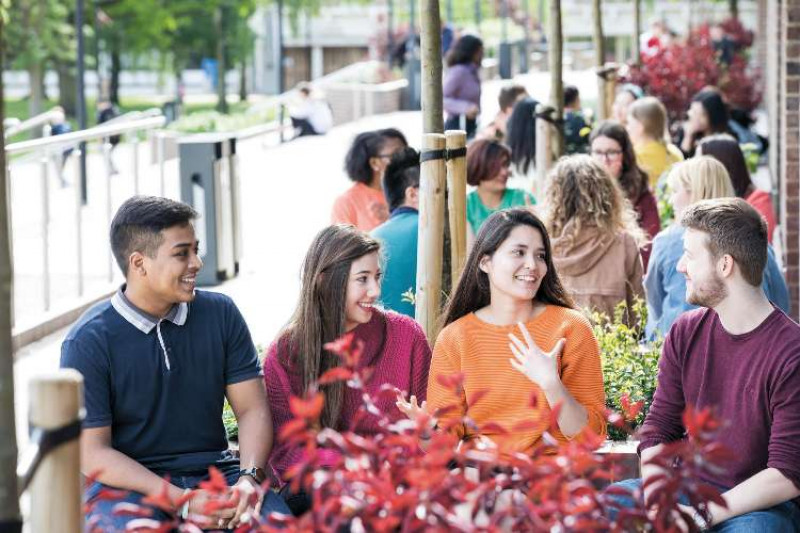Our vision
We are a diverse group of researchers, drawn from the University’s English, history, architecture, classics and archaeology, and history of art departments, who believe in the importance of interdisciplinary research and teaching.
From early modern drama to early medieval European culture, we believe that the cultural lives of our ancestors can be accessed through multiple ways. From buildings and art, to the fragmentary documents of the past such as charters and wills, to the poetry and literatures of the premodern world, we believe that our students should be trained in multiple skills to access the past.
We want our students to see archives, buildings, art and the literature preserved in handwritten and early printed books as being accessible, indeed, necessary resources for their understanding of the past. We have a staff of internationally respected researchers who come from a wide range of disciplinary backgrounds and who are dedicated to and proud of the programmes of study that are offered by MEMS. Our core modules provide key technical training in the languages and scripts of the past, and our optional modules educate our students in the fundamentals of undertaking postgraduate research.
Our central focus is to turn our students into people capable of undertaking professional research, but the skills they gain also prepare them for a wide variety of careers. Our incredible success in gaining funding for further research by our students has been the best testimony to the success of our MA training.
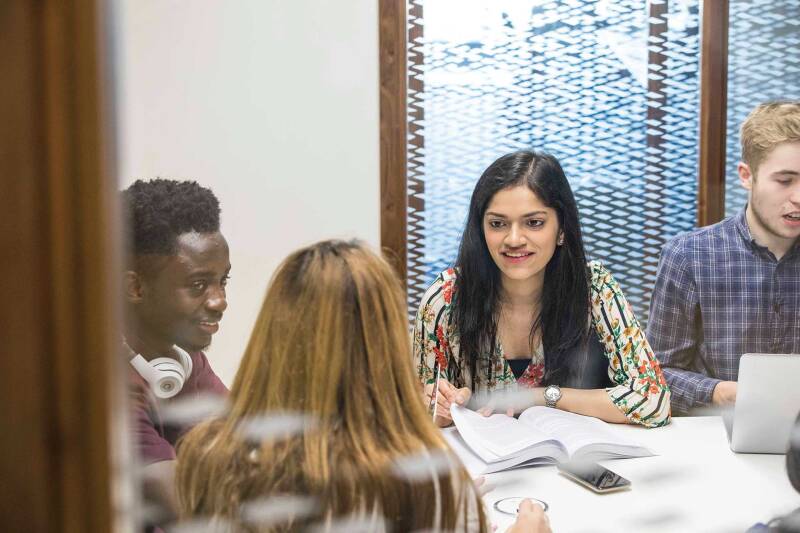
A supportive community
At the heart of MEMS is its community. We provide layers of support for our students, beginning with a dedicated academic adviser and our wonderful student support team. Once a week, MEMS convenes as a group for its seminar, an opportunity to hear world-leading research by a visiting speaker, and to meet and chat as a community. Our seminar is always well-attended and provides a touchstone for taught and research students to mingle with one another and with staff.
Our staff and PhD students are also responsible for generating other events where people can participate in academic discussion and socialise. One annual highlight is the MEMS Summer Festival. Entirely organised by MEMS students, it attracts postgraduates and senior academics from across the UK and elsewhere in the world.
Excellent teaching
All of our teaching is informed by the research interests of our academic staff. This means you learn from academics whose work is opening up new areas of study and shaping the future of the field. You also benefit from the specialist expertise of staff at the Canterbury Cathedral Archives and Library.
We ensure you develop the intellectual and practical tools you need to embark on original research. By studying palaeography, codicology and Latin, you are able to engage with original materials, further immersing yourself in the period you are studying.
Whether you choose to study solely in Canterbury, or to split your time between Canterbury and Paris, your lecturers accompany you on special visits to libraries, archives, museums and various heritage sites to examine objects, documents, records and treasures.
There is a wide variety of optional modules offered, so you can choose modules based on your own interests or choose something new that sounds fascinating and different – it can be a very hard decision!
A vibrant research culture
Research is the cornerstone of our Centre and our students benefit from the diversity of our work. We ensure students are aware of current research in the field and also give them opportunities to present their own work. Current initiatives to help enrich our programmes include:
- weekly interdisciplinary research seminars, with thought-provoking papers from both internal and external speakers
- MEMS’ ‘Masterclass Series’ where visiting experts provide practical, skills-based training, for example editing from manuscript materials, codicological methodologies, textual relations and stemmata
- MEMS Working Papers Series showcases unpublished research and gives graduate students, academic staff and visitors to the University of Kent the opportunity to present the results from their research
- Early Modern Discussion Group
- Old English Reading Group.
We also encourage our students to organise and attend research conferences and colloquia.
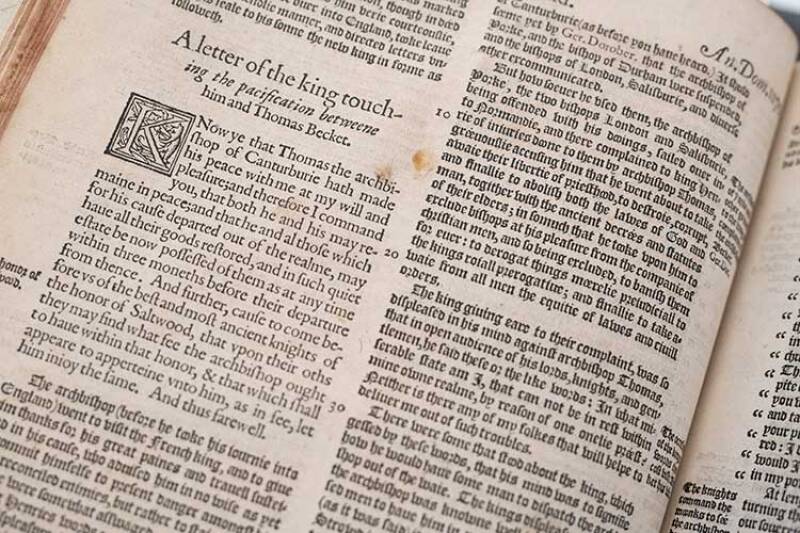
Our students have access to the Templeman Library's Special Collections
Excellent resources
Studying with us gives you access to an outstanding set of resources both on campus in the University’s Templeman Library and in Canterbury.
Specialist librarians ensure you are able to take advantage of the Templeman’s Special Collections and supporting materials. Nearby is the library of the Franciscan Studies Centre, housing an unusually wide collection of works in theology and church history.
We have close relationships with the Canterbury Cathedral Archives and Library, the Canterbury Archaeological Trust and Rochester Cathedral Archives, giving you access to range of unique, historical, literary and material evidence.
Those students who choose to study in Paris have access to the American University of Paris Library, as well as the research collections at the Bibliothèque Nationale de France and the Archives Nationales.
Impressive prospects
Graduates of the Centre for Medieval and Early Modern Studies do well in careers, including heritage, museum or archivist work, as well as in other areas such as fundraising and teaching. Some choose to pursue research in the area, moving on to study for a PhD.
We provide subject-specific specialist training via workshops on bibliographic skills, Latin, editing from manuscript materials and codicological methodologies.
The University’s Graduate and Researcher College also delivers training for taught and research students. The Global Skills Award programme is for students on taught programmes. It enhances your awareness of current global issues and improves your career prospects and networking skills.
The Researcher Development Programme is for research students. It helps you to develop your research skills, and also covers research management, personal effectiveness, communication, networking and teamworking, and career management skills.
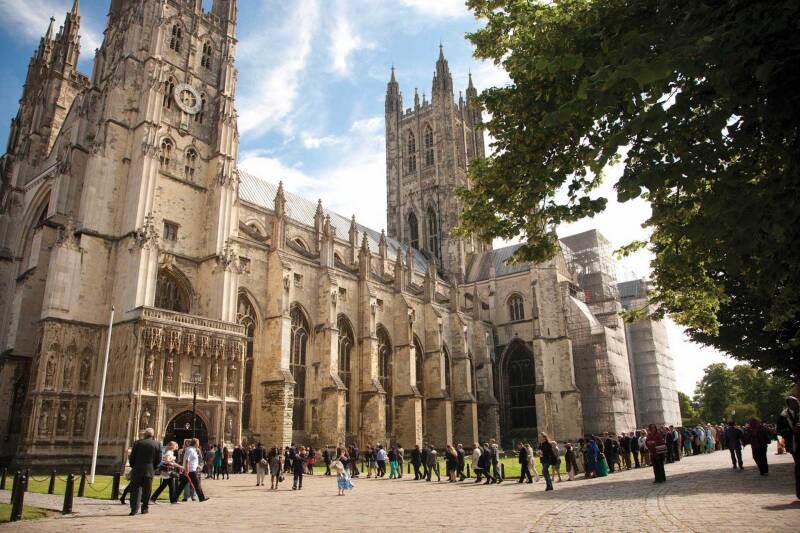
Ideal location
The medieval city of Canterbury, an important focus for literary, religious, archaeological and architectural study, is the perfect location for your studies. You have access to the resources at Canterbury Cathedral, including the archives and library.
Away from your studies, you can also visit the historic pubs, cafés and restaurants and mix of independent shops and leading high street brands.
There are other valuable local resources at Rochester Cathedral Library and the Kent History and Library Centre at Maidstone, while the major collections in London are less than an hour away by train.
The Centre is based on our Canterbury campus in a beautiful setting, with plenty of spaces to study and relax. Everything you need on campus is within walking distance, including a general store, a bookshop, a bank, a medical centre and a pharmacy.





